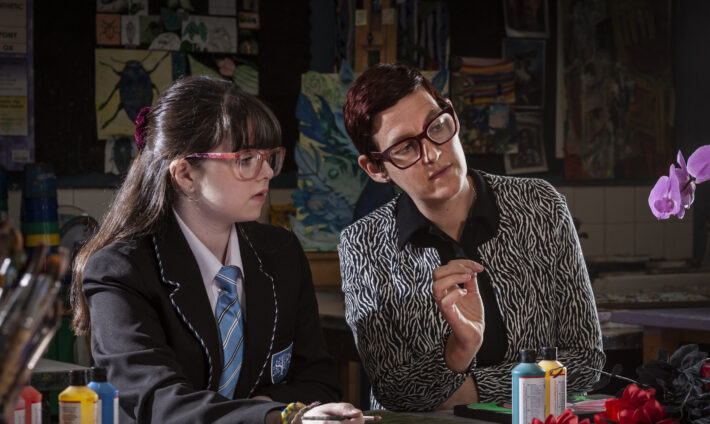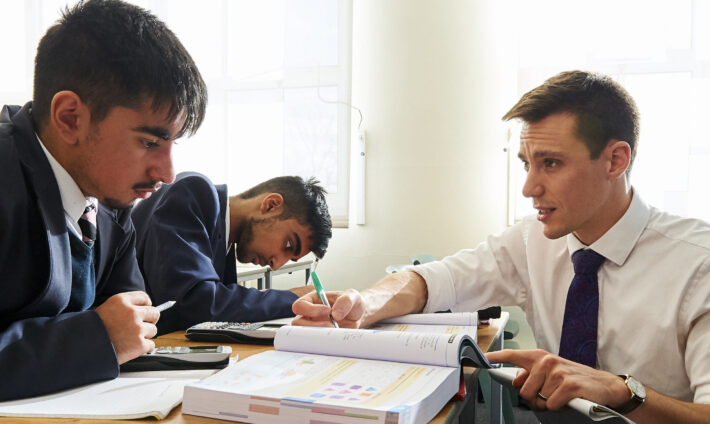Physical Health
As McMillenHealth explains, physical health delves deeper than just ‘how fit you are’, it explores the functioning of body systems and organs. The definition of achieving physical wellness differs with each person, making it complex, yet vital in regards to lifestyle choices.
Physical health comes hand in hand with mental health. If mental health is affected, it has an impact on physical health and vice versa, therefore it’s crucial that the two are looked after to prevent health being compromised.
Across the Foundation, we aim to ensure students’ physical health is looked after through exercise, a healthy diet, and educational lessons to increase awareness.
To learn more about what the Foundation does to support physical health, continue reading.

Endorsing Physical Health
See below what schools across the Foundation provide to support physical health:
- Personal, Social, Health and Economic (PSHE) Education outlining sex education, drugs education and health education;
- The Physical Education curriculum in our schools offer pupils the opportunity to experience a wide range of sports within and outside of lessons. Some of these sports include basketball, football, cricket, netball, hockey, fitness, gymnastics, athletics and rounders to name a few;
- Schools have a wide enrichment offer with clubs on every day of the week, enabling pupils to further progress their skills, or to help improve their fitness and make new friends;
- Physical activities in school help young people develop the confidence to take part in different activities and learn about the value of healthy, active lifestyles. Discovering what they like to do, what their aptitudes are at school, and how and where to get involved in physical activity helps them make informed choices about lifelong physical activity;
- Physical Education helps pupils develop personally and socially. Taking part in activities and clubs as individuals, in groups and in teams, develops concepts of fairness and of personal and social responsibility, including leadership, coaching and officiating. Through the range of experiences that PE offers, they also learn how to be effective in competitive, creative and challenging situations;
- The aims of our schools is that all pupils are inspired to be physically active and physically confident ina variety of sports which support their health and fitness. The curriculum gives pupils opportunities to compete, lead and perform a range of activities to build values and character in order to embed the important of good social, emotional and physical health for their lifestyle today and in the future;
- Partnership with Cycle to Work scheme for staff across the Foundation;
- Food and nutrition – school meals across the Foundation comprise of fruit and vegetables ensuring a healthy diet.

SEND BIRMINGHAM
Giving all children the opportunity to thrive
To ensure children with a learning disability also have the opportunity to partake in a healthy, active lifestyle, SEND Birmingham have highlighted the below activities:
To learn more about how the Foundation supports children with a learning difficulty, click here

Image by Gov.uk
“To stay fit and healthy, it’s recommended you get at least 150 minutes of moderate physical activity a week, or around 20 to 30 minutes a day.” NHS

FAQs
-
A healthy lifestyle consists of making choices that contribute to your physical and mental wellbeing, therefore it’s important to make decisions that positively impact your health.
In short, a few tips to improve your health includes:
- Exercise;
- Balanced diet;
- Hydration;
- Sleep quality;
- Removing bad habits.
And the list goes on… To get a more detailed overview of healthy living, click here
-
The prominent link between physical health affecting mental health symbolises the importance of exercise.
Mind adds that physical activity can help with things like:
- Managing stress;
- Improving sleep;
- Connecting with nature;
- Socialising and meeting new people;
- Managing symptoms of depression and anxiety;
- Memory and brain functioning;
- Heart, muscle and bone health.
For more information, click here
-
There may be barriers stopping your child from doing a physical activity, such as lack of motivation or having experienced discrimination.
However, some form of physical activity is important for not only keeping fit and healthy but also for our mental wellbeing.
For support to overcome this barrier, read more here
-
If you suspect your child is drinking, smoking and/or vaping, it’s worth sitting down with them and discussing the health effects this can have so that they are encouraged to stop.
If they are struggling to stop, please visit the Addiction page here.




